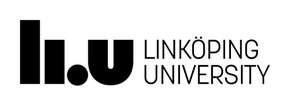Ethics, Science, and Policy

Learn how to evaluate and develop policies for some of the most pressing issues in society! You will study and practice ethics and philosophy of science to influence and develop policy on topics such as education, healthcare, risk management, taxation, and research.
Policy design has many different aspects that impact people and society. The world needs individuals like you who can connect facts and values, offering solutions to both common and complex problems. These skills are now more crucial than ever and form the core of our curriculum. By merging ethics, science, and policy, you study policy making and analyse arguments for and against proposals, strengthening the case for change.
Core Skills Development
Evaluating and developing policies involves absorbing scientific findings for decision making, applying theoretical insights to practical situations, and understanding the consequences for those affected by policy implementation. The courses are structured to prioritise your development of essential skills in:
- summarising, critically examining and evaluating current research literature in areas relevant to policy development.
- describing and analysing philosophical concepts, theories, and problems relevant to the evaluation and use of research literature.
- presenting research findings to a broad audience.
- developing theoretically informed reasoning in specific problem areas related to philosophical issues in policy work.
- formulating theory-based policy recommendations and assessments of a normative question in a particular policy area based on new research.
Na studia magisterskie mogą kandydować wszyscy, którzy ukończyli studia licencjackie lub inżynierskie (studia I stopnia), studia magisterskie lub studiują na ostatnim roku studiów I-stopnia. Studia, które planujesz powinny mieć zbliżony profil do tych obecnych lub ukończonych, ponieważ w procesie rekrutacji kluczowa jest ich zgodność programowa.
- Wykaz punktów ECTS – osoby, które są jeszcze w trakcie studiów, muszą załączyć wypis punktów ECTS, w którym będzie wykazane, jakie przedmioty były realizowane na studiach oraz ile punktów za nie otrzymano.
- Dyplom ukończenia studiów licencjackich lub inżynierskich – jeśli jesteś absolwentem wyższej uczelni, nie potrzebujesz wypisu, wystarczy załączyć dyplom ukończenia studiów wraz z suplementem (oryginał z tłumaczeniem przysięgłym)
Spełnienie wymagań w zakresie języka angielskiego można udokumentować w następujący sposób:
- IELTS - 6.5 (minimum 5.5 z każdej części) lub
- TOEFL – 90 (w tym minimum 20 z pisania). Wynik musi zostać przesłany na uczelnię bezpośrednio z centrum egzaminacyjnego.
*Wymagania językowe mogą się zmieniać i różnić w zależności od kierunku - przed aplikacją sprawdź wymagania bezpośrednio na stronie uczelni.
- Bachelor's degree
- English corresponding to the level of English in Swedish upper secondary education (Engelska 6)
Upon successful completion of studies, you will be well prepared for careers in various policy areas as well as eligible for further studies and research at doctoral level. Job market opportunities lie above all in planning, development, management, and evaluation work, e.g., in the private and public sector within both national and international organisations. Examples of activities where this profile is in demand are policy work within public activities, such as think tanks, municipalities, and regions.
